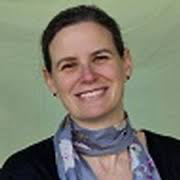Workshops & Keynote
Navigating Careers & Institutional Types in the US Higher Education Landscape
R1, Tier 2, and HBCUs – What do these all mean?
Navigating Careers & Institutional Types in the US Higher Education Landscape
Thursday | October 8, 2020 | 9:00AM EST
So, you’re interested in an academic career… Fantastic! Whether you are applying for a tenure-track faculty position, a staff position, research-scientist, or even something unrelated to your doctoral research, it’s important to understand that the structure of these positions varies widely from institution to institution. For example, knowing how to give a biology lecture to 300 students in an auditorium at a research-intensive university is different than running a summer science academy at the local community college. Depending on the position and the type of institution, many academic jobs, even those that are NOT faculty positions, may still have a greater emphasis on teaching and/or students (e.g. undergrads), or a specific subset of students (e.g. under-represented minority students in an urban setting), based on the type of institution that the position is in. This might require you to not only address the job requirements themselves but also how you would take the skills and the knowledge you developed through your training and modify it to fit the institution you are applying to.
This workshop is meant to give you a brief overview of the wide variety of institutional types that make up the U.S. Higher Education System, as well as examples of faculty and non-faculty positions you might be interested in, and how these positions are both similar and different based on the institution.
—
John Vasquez, PhD
Director of Assessment and Professional Development
Van Andel Institute Graduate School, Grand Rapids, MI
Dr. John Vasquez is the Director of Assessment and Professional Development in the Graduate School at the Van Andel Institute (Grand Rapids, MI). As such, he is responsible for the assessment and evaluation of programs and courses within the Graduate School, oversees its program review and accreditation initiatives and creates professional development opportunities for grad students and faculty. With more than 20 years of experience in higher education at both the University of Michigan and Michigan State University, Dr. Vasquez’s work focused on enhancing evidence-based best practices in graduate education. Dr. Vasquez received his PhD in Higher, Adult and Lifelong Education (HALE) from Michigan State University, where his research focused on career and professional development in graduate education – specifically, the effect of career orientation on the retention, completion and late state (post-candidacy) attrition of under-represented students (URM) and the psycho-social factors affecting career trajectories of URM scientists.
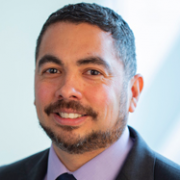
An Introduction to DEI Concepts for Help in Preparing a Diversity Statement
An Introduction to DEI Concepts for Help in Preparing a Diversity Statement
Thursday | October 8, 2020 | 10:00AM EST
For many job applications packets, a diversity statement is now required. In order to write a strong and meaningful statement it is imperative to understand the terms diversity, equity and inclusion (DEI). These terms have been defined in many different ways and it is sometimes difficult to understand what they really mean. This workshop will give an introduction to concepts around DEI and provide foundational learning that will aid the process of writing an impactful diversity statement.
—
Kendra Pyle, PhD
Academic Advisor, Departments of Biochemistry & Molecular Biology and Plant Biology
Coordinator for Diversity, Equity, and Inclusion, College of Natural Science
Michigan State University, East Lansing, MI
Dr. Kendra Pyle is an Academic Specialist in the College of Natural Science (NatSci). She advises undergraduate majors in the Departments of Biochemistry & Molecular Biology and Plant Biology. In this role, Dr. Pyle engages students in utilizing campus resources, developing time management and study skills, planning schedules, finding undergraduate research and internship opportunities, career development, and preparing for graduate and professional school. In addition to her advising role, Dr. Pyle serves as NatSci Coordinator for Diversity, Equity, and Inclusion (DEI). She develops training and educational programs to promote DEI throughout the college and assists with college-level initiatives to enhance an inclusive climate. Before starting at MSU in 2013, Dr. Pyle spent ten years coordinating and leading educational, outreach, and environmental programs. She has worked extensively with college students and recent college graduates as a supervisor, mentor, instructor, facilitator, and tutor. She has a bachelor’s degree in biology and anthropology from Western Michigan University and a master’s degree in biology from the University of Pennsylvania. She completed her master’s research in the Netherlands, worked as a field station manager in Belize, and completed animal behavior field research in Panama, Costa Rica, and Kenya.
Interfacing with Michigan Leaders in Academic Technology Commercialization
Interfacing with Michigan Leaders in Academic Technology Commercialization
Thursday | October 8, 2020 | 12:00PM EST
Zoom webinar with university leaders in tech transfer and commercialization. This panel will discuss aspects of the process and experience working to bring ideas and products from academia to industry. Our speakers bring a wealth of knowledge and understanding about the field and the major players.
—
Bryce Pilz, JD
Director of Licensing, UM Tech Transfer
University of Michigan, Ann Arbor, MI
Bryce Pilz is Director of Licensing for UM Tech Transfer. UM Tech Transfer is responsible for commercializing university research discoveries. Last fiscal year, the office received 522 new inventions, created 268 option and license agreements and helped launch 31 startups. Prior to assuming a leadership role at UM Tech Transfer, Bryce was faculty at UM Law School where he co-founded the Entrepreneurship Clinic and taught courses related to IP Strategy and Venture Capital. Bryce is co-chair of Mcity‘s Legal & Insurance Working Group. He received his JD from Michigan Law in 2000 and his BS in mechanical engineering from the University of Michigan College of Engineering in 1997.
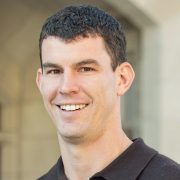
—
Joan Dunbar, PhD
Associate Vice President of Technology Commercialization
Wayne State University, Detroit MI
Dr. Joan Dunbar received her Ph.D. in biochemistry from the University of Sydney, and undertook postdoctoral studies at the Carlsberg Laboratory in Copenhagen, Denmark and subsequently at the University of California, Irvine. She was appointed assistant professor in WSU’s Department of Molecular Biology and Center for Molecular Biology and Genetics in 1987. She has served as principal investigator and co-investigator on many grants funded by the National Institutes of Health and the National Science Foundation, and collaborated extensively with industry on these projects. She created one of the first “Business of Biotech” curriculum programs in the nation that focused on engaging graduate students and postdoctoral fellows in biomedical sciences in entrepreneurship. She has played a key role at Wayne State to develop technology commercialization strategies for technologies stemming from research, and was instrumental in launching a new technology commercialization culture at the university to prepare faculty to take their research discoveries to the next level.
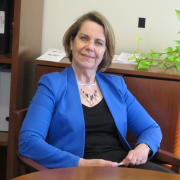
—
Richard Chylla, PhD
Executive Director of MSU Technologies
Michigan State University, East Lansing, MI
Dr. Richard Chylla is one of the three pillars of Michigan State University’s Innovation Center, which combines innovation, technology transfer, start-up support, and a portfolio of dedicated business and community partnerships to bring cutting-edge ideas to the marketplace. Dr. Chylla did his undergraduate and doctoral work at the Illinois Institute of Technology and holds degrees in chemical engineering. He has a strong background in technology commercialization from his domestic and international positions in product and business development and technology management and licensing. At MSU, he is responsible for all strategic and operational issues related to managing the university’s diverse intellectual property portfolio, including identifying and protecting intellectual property, marketing and negotiating technology transfer opportunities with industry, and helping to identify innovations with the potential to form start-up companies.

The Inside Scoop on Interviews
The Inside Scoop on Interviews
Friday | October 9, 2020 | 9:00AM EST
Be Prepared! It’s not just the motto for the Boy Scouts, it’s also really the only advice you need for an interview. For all the other parts, join us for a bit of modeling and practice with some common questions and pitfalls that you may experience in your interviews.
—
Aaron Reifler, PhD
Director of the Office of Postdoctoral Affairs
Michigan State University, East Lansing, MI
Dr. Aaron Reifler is Director of the Office of Postdoctoral Affairs. He came to MSU with a diverse career in research and higher education. Before starting his Ph.D. in Neuroscience, he earned a Master’s and certification in secondary education (for French and Chemistry), and taught courses in High Schools in the sciences
and foreign languages. His research projects as a student and postdoc spanned a variety of areas in biology and life sciences, and his most recent scientific publications were in Vision Neurosciences. He has been singularly focused for the past few years on addressing the unique needs of postdoctoral trainees and the structure of their support mechanisms at MSU, and he partners with the many excellent programs and individuals at MSU and throughout the world.
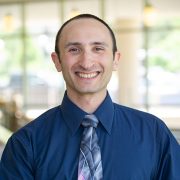
—
Julie Rojewski, PhD
Director of PhD Career Development
Michigan State University, East Lansing, MI
Dr. Julie Rojewski is Director of Ph.D. Career Services in the MSU Graduate School. She supports the career and professional development of graduate students via workshops, fellowship and cohort programs, internship opportunities, and other efforts. She has spent most of her career serving academics in various roles, including Program Manager for the MSU BEST (Broadening Experiences in Scientific Training) program funded by NIH, Director of MSU’s ADVANCE project (NSF), Interim Director of Teaching Programs at the MSU Graduate School, and Interim Associate Director for Teaching and Learning in the MSU Office of Faculty and Organizational Development. Her academic training spans the humanities and social science, and she regularly collaborates and publishes with STEM partners to develop and assess professional development programs. She is a skilled teacher, facilitator, and consultant to institutions who want to develop their own programs or deliver engaging workshops and seminars to their students, faculty, and staff.
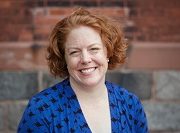
Keynote Address: Navigating Negotiations
Keynote Address:
Navigating Negotiations: Exploring the path to successful strategies and outcomes
Friday | October 9, 2020 | 10:00AM EST
For many, navigating the negotiation landscape is like traveling through uncharted territory without a compass. Based on her experiences in higher education, conflict resolution and negotiation, Dr. Burton will guide you through preparation, strategies and considerations as you venture into both academic and non-academic career spaces. Through this talk, you will be able to develop your own map to successful negotiations.
—
Shannon Lynn Burton, PhD
University Ombudsperson
Michigan State University, East Lansing, MI
Shannon became the University Ombudsperson at Michigan State University in July 2018 after serving previously as both the Assistant University Ombudsperson and later Associate University Ombudsperson. During her tenure, she has cultivated a culture of academic integrity, guided students on goal setting and educational choices and ensured institutional compliance with federal regulations. In her role as University Ombudsperson, she seeks to make the office a touchpoint for building trust within the organization by creating a space where individuals can freely discuss their concerns in an environment that adheres to the International Ombudsman Association (IOA) Standards of Practice: confidentiality, informality, neutrality and independence. Ultimately, her goal is to develop human capital in managing conflict and improve communication skills in line with the role and purpose of the ombuds office, as well as in line with the university’s mission. Shannon earned her PhD in Higher, Adult and Lifelong Education with a Specialization in Global Urban Studies from Michigan State University. She also has a Master of Science in Academic Advising (Kansas State University), a Master of Arts in Student Affairs Administration (Michigan State University), as well as a Bachelor of Arts in Russian Studies, a Bachelor of Science in Sociology, and a Bachelor of Arts in Spanish (Grand Valley State University). In 2018, she also completed a graduate certificate in Dialogue, Deliberation and Public Engagement (Kansas State University).




